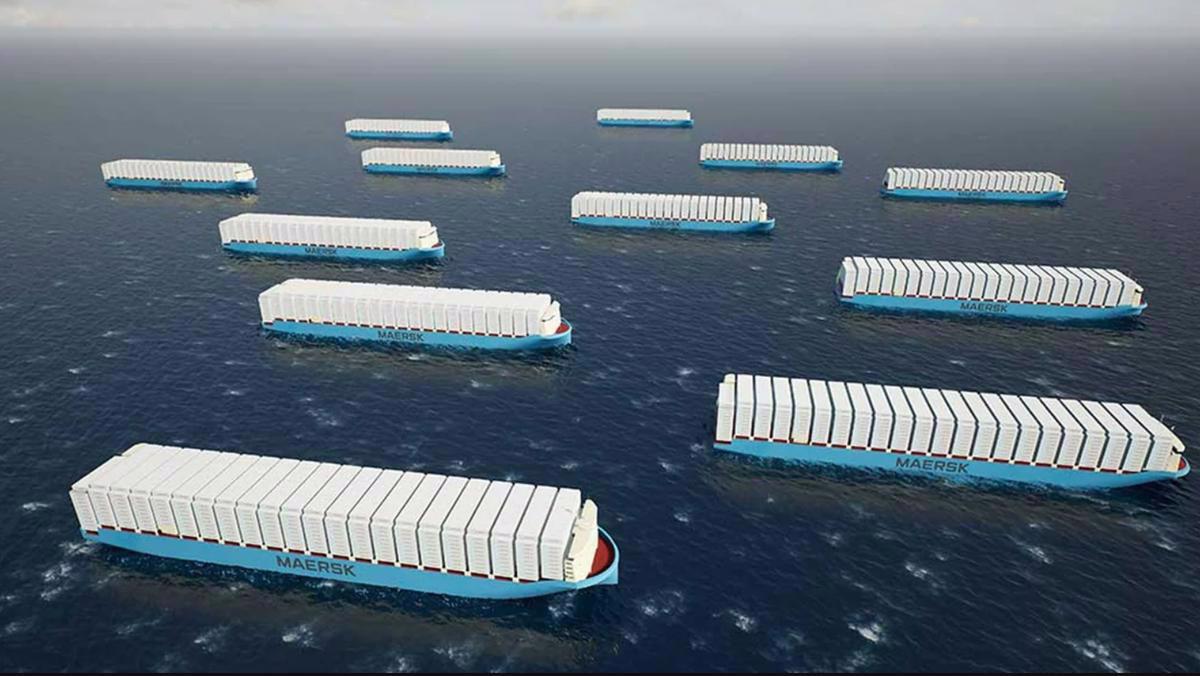Invest in conversion-ready vessels rather than dual-fuelled ones - Mærsk Mc-Kinney Møller Center
As dual-fuelled vessels gain traction in the shipping industry, they can also be risky investments if one of the fuels you bet on fails to be widely adopted, a new report argues.
 PHOTO: Maersk aims to operate 12 methanol-powered vessels by 2024. Maersk
PHOTO: Maersk aims to operate 12 methanol-powered vessels by 2024. Maersk
In a recent report, Mærsk Mc-Kinney Møller Center for Zero Carbon Shipping suggests that shipowners should invest in newbuild vessels that easily can be converted to use any future fuels. It says that newbuilds should be designed in a way that allows for installations and modifications required to take on future fuels.
Mærsk Mc-Kinney argues that dual-fuel vessels can be less complex than these retrofit-ready alternatives, yet dual-fuel vessels can be costly investments.
Shipowners opting for lower density fuels like ammonia and methanol could face space constraints as these fuels take up much more space in storage. And the storage tanks of a second-in-line dual fuel are likely to be unused until the fuel becomes readily available. This would hamper the potential earnings capacity for the vessel due to lost cargo space, the report highlights.
So as an alternative to dual-fuel newbuilds, Mærsk Mc-Kinney thinks newbuild designs should incorporate future retrofitting options.
It prepared the report in collaboration with major shipping companies such as Maersk, Seaspan and NYK Line, along with engine manufacturer MAN Energy Solutions.
By Nithin Chandran
Please get in touch with comments or additional info to news@engine.online






